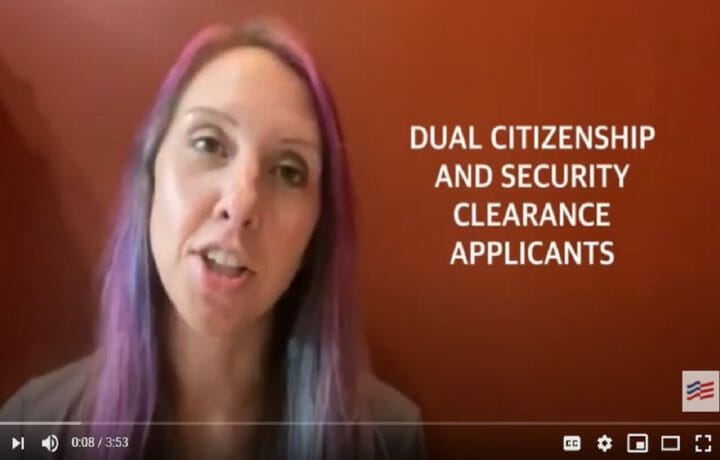Dual citizenship used to be a complicated issue for security clearance applicants. One factor that made it more complicated is that some countries grant citizenship to individuals born there, regardless of any action the individual takes. With limited ties to a foreign country, some individuals saw roadblocks in their path to a national security career, or even took unadvisable steps in reaching out to the country in question to try to renounce their citizenship.
Fortunately, the signing of Security Executive Agent Directive (SEAD) 4 in December of 2016 ushered in new policy for dual citizens. Previously, the adjudicative guidelines barred security clearance holders from “any right, privilege or obligation of foreign citizenship” which was interpreted to include possessing a passport. Most security clearance applicants were asked to turn in their foreign passports to their security officer as an obligation of obtaining a national security position.
Dual Citizenship and Foreign Investments
The SEAD update rightly recognized that simply having dual citizenship or even taking advantage of reasonable advantages of dual citizenship (traveling with a different passport), was not an issue. Perusing the security clearance appeals decisions published by the Defense Office of Hearings and Appeals you see a number of examples of individuals who had dual citizenship, significant time in other countries, foreign investments, or other issues that were successfully mitigated. Clearly because these cases are appeals we see that the path to a favorable clearance isn’t straightforward. But if you’re willing to provide mitigating information, a security clearance can be obtained.
One individual recently asked if 13 years of living and working in the UK (after a U.S. military career), and significant foreign investments based on overseas positions would result in a clearance denial. Short answer: Not necessarily. The government is going to want to know the nature of the investments, and the applicant should likely look into divesting the assets if possible. If it’s unreasonable or financially unwise to do so, that may be mitigated – but the applicant would need to demonstrate it. Consulting with both a financial advisor and a security clearance attorney is advisable.
Simply living or working abroad – even for a decade or more – is not a security clearance killer. Neither is being born in a foreign country.




